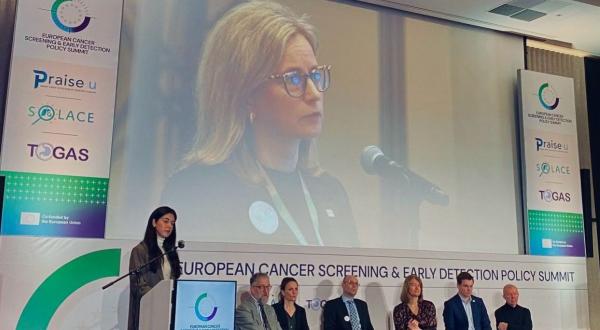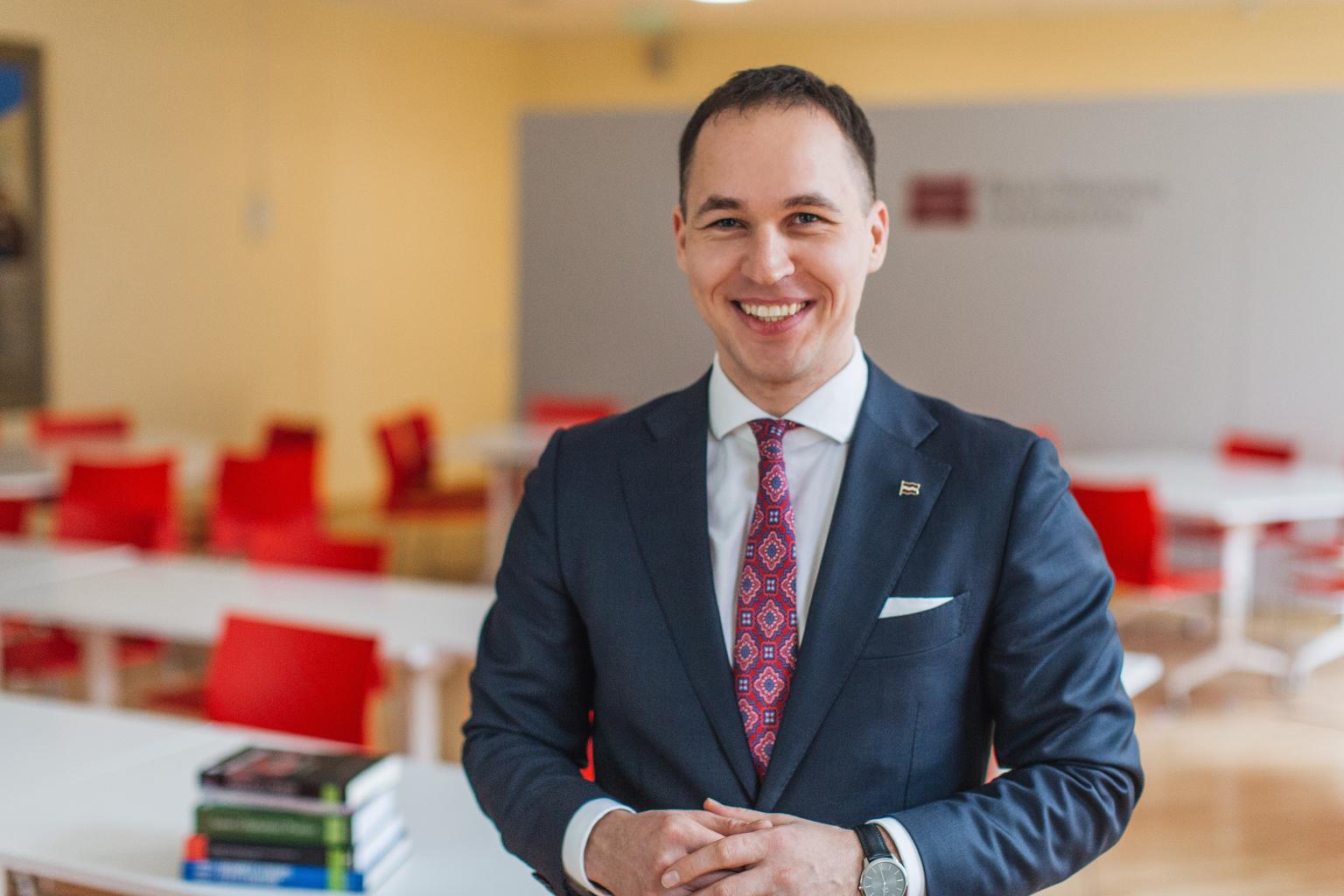Māris Andžāns: A Researcher Should Always Be Moving Forward!
Each researcher has their own reasons that have led them to choosing a challenging research direction. For some research has been a childhood dream, for others a lifelong goal, and for some an unexpected event made them change their path in life.
We met with Māris Andžāns, a lecturer at the Rīga Stradiņš University (RSU) Faculty of European Studies and the head of several study programmes, to ask what made him choose research and what his chosen direction has been like so far.
How did your relationship with research begin?
I obtained my bachelor’s degree at RSU, then continued with a master’s degree and a doctorate. RSU is my university as I have studied here at all three levels up to defending my doctoral thesis. My research work began while I was studying for my bachelor’s degree. A lecturer I had at that time encouraged me to participate in a student conference. Since then, I have been convinced that it is lecturers who play a crucial role in getting students involved in research.
I got more involved in research during my doctoral studies because research plays a big part of the study process. Doctoral students must write publications about their dissertation topic, and you have to participate in scientific conferences. The topic of my dissertation was the security of the Baltic states in a theoretical framework and an international context. This topic is still interesting to me and you could say that it is both my work and my hobby. Everything is interconnected, whether something happens in Washington, Moscow, Brussels or Beijing, in one way or another everything affects us. Besides, security is not a purely military issue but is a much broader concept and includes economic, political, social and environmental aspects, among others. While I was studying for my PhD, my daily tasks did not involve teaching and research, so working on my thesis was like a hobby. However, in 2016 I got the opportunity to work at RSU. Initially, I headed one master’s study programme, then a few more. At the same time, I started to conduct research on a daily basis at RSU and at the Latvian Institute of International Affairs.
What are you currently researching?
My main interests still revolve around international security and Latvia’s place in this. Yet, I cannot just cherry pick what I’m interested in. I am involved with other studies, too, which are often no less interesting. There are currently quite a lot of studies being conducted at RSU and I am involved in some of them. I am the leader of a project about the value in action, which is being implemented within the framework of the National Research Programme. In cooperation with the Vidzeme University of Applied Sciences our task is to find out how EU norms and legislations affect Latvian civil society.
I am also participating in two studies on the impact of COVID-19. One of them is reCOVery-LV, which is about how Latvia can recover from the initial crisis. I am analysing the political situation, and economic situation which is closely related to it, of the world's largest economy – the United States. In the previous academic year, I spent almost six months in USA as a visiting Fulbright researcher at Johns Hopkins University, so I can apply my experience to my research. Within the framework of another project, Dzīve ar COVID-19 (Life with COVID-19), I am studying Latvian external strategic communication and its effects abroad.
There is another internal grant on people’s readiness to defend Latvia. We are asking why Latvian citizens do or do not want to defend their country? Previous studies have shown that people in Estonia are more prepared to defend their country than us, Latvians. What are the reasons and indicators? We have started to conduct an in-depth study, which will last for a year.
What challenges does security politics face today?
Russia still holds the same position. Generally speaking, major changes are unlikely regardless of who, or what comes after Putin, or when this might happen. We must be cautious. It is not just a question of military threats, which are currently unlikely, but still cannot be completely forgotten. History shows that theoretical and potential opponents should not be underestimated.
At the moment, of course, the issue of Belarus is topical. In our neighbouring country people are going into the streets and security forces are using violence against them. It is possible that Russia might interfere at some point. Belarus is closer to us than Ukraine is, and the conflict there began at the end of 2013 already. Remember, the war in Ukraine was real, and still is only at a lesser intensity. If the worst scenario does start to develop and hostilities break out near our border, it is possible that there will be provocations. Lukashenko has on several occasions spoken about various imaginary threats from NATO.
The confrontation continues and we can see that different countries, even within the EU, have different opinions. Moreover, confrontation is often not only military or economic – continuous attacks on our computer networks and the information space are taking place. In general, the world is and remains uneasy. Dozens of armed conflicts are taking place simultaneously. Africa and the Middle East stand out the most. Before the events in Georgia and Ukraine we all thought that Europe is a peaceful place, but current events show that this is not the case.
Why attracted you to research? What character traits should a researcher possess?
A researcher should love their work. I have always been interested in history, geography, languages and politics. Research is an opportunity to create new knowledge and share this knowledge with others. We, at the Faculty of European Studies, are good at disseminating knowledge. We comment on international events and explain them to the public. We must be ready for what will or might happen. There must be a general understanding of how we could become affected by the events in Belarus, by the US presidential elections, Russian regional elections, as well as by other processes, and the impact of such processes on economics, politics, the military or other areas.
Research is freedom. At RSU we can be proud of having complete academic freedom. There is a diversity of opinions and the possibility to freely participate in local and international conferences, as well as to conduct studies based on international experience.
What are three of the most important characteristics a researcher should possess?
Patience. Things rarely develop as quickly as one would like them to. A high working capacity. Persistence. A researcher should always move forward!
Related news
 RSU Professor Maija Radziņa represents Latvia at EU cancer screening summitResearch, International Cooperation
RSU Professor Maija Radziņa represents Latvia at EU cancer screening summitResearch, International Cooperation



